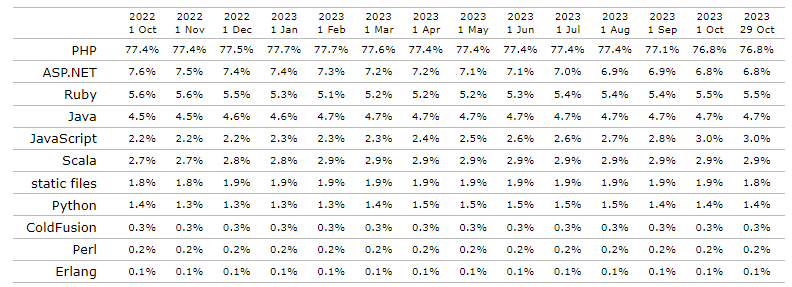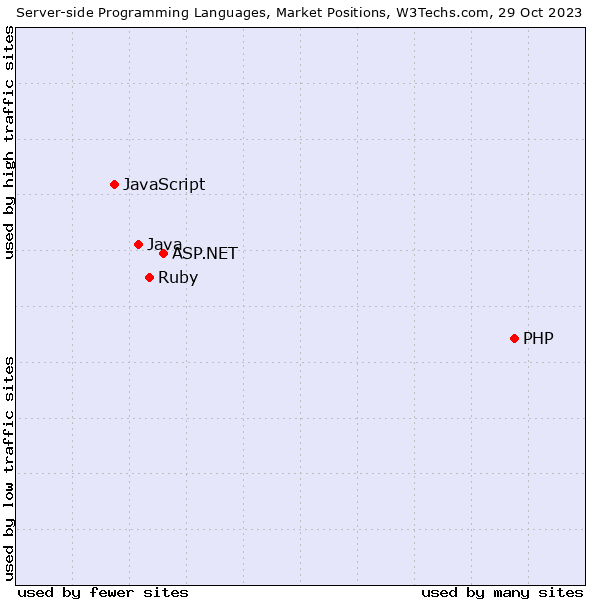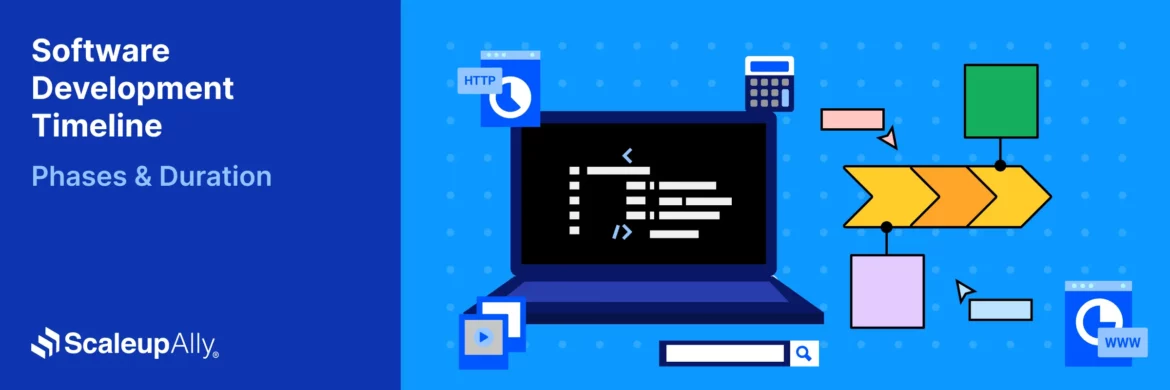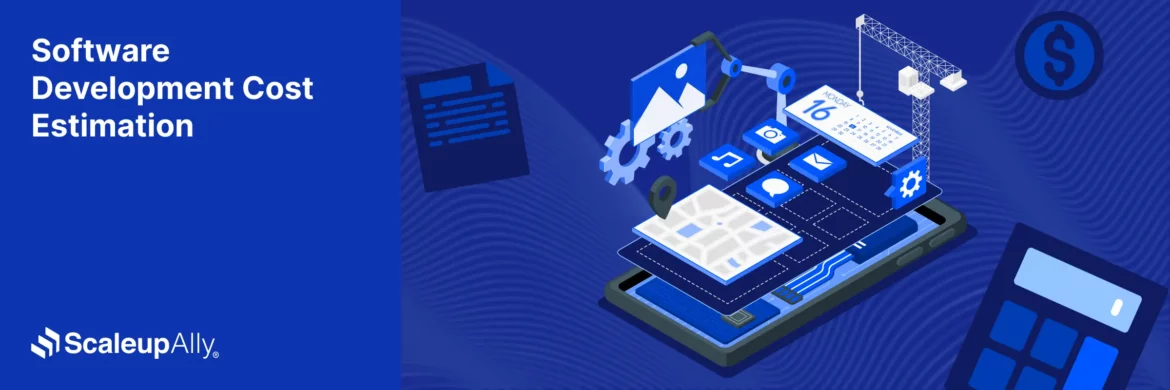
12 Reasons to Choose PHP for Ecommerce Web Development
Suprabhat Sen | October 30, 2023 , 10 min read
Table Of Content
Did you know that there are over 27 million websites worldwide utilizing PHP? This statistic alone seems to be the biggest reason for choosing PHP for the development of your e-commerce website.
E-commerce is an essential part of modern business, and companies are constantly seeking innovative ways to serve their customers better online. To compete effectively, businesses must create user-friendly websites that attract visitors and turn them into paying customers.
PHP, an open-source server-side scripting language, plays a crucial role in achieving this goal.
In this blog we will explore the top reasons to choose PHP for ecommerce website development.
Key Takeaways
- Key advantages of PHP include cost-effectiveness, high performance, scalability, and security, making it an ideal choice for businesses looking to develop fast, secure, and customizable e-commerce websites.
- PHP supports seamless integration with databases, content management systems (CMS) like WordPress, and payment gateways like PayPal and Stripe, enhancing functionality and user experience.
- Its extensive community support, large ecosystem of frameworks (Laravel, Zend, Symfony), and rich extension library enable rapid development and easy maintenance of e-commerce platforms.
- Popular PHP-based e-commerce websites include eBay, Steam, Magento, OpenCart, and PrestaShop, proving its reliability in handling high-traffic and large-scale online stores.
- PHP’s SEO-friendly architecture, mobile responsiveness, and ability to customize every aspect of an e-commerce store make it a preferred choice for businesses looking to maximize their online visibility and conversions.
Is PHP recommended for ecommerce website development?
Yes, PHP is highly recommended for ecommerce website development due to its versatile and robust features. As a server-side scripting language, PHP offers a plethora of functionalities that are particularly beneficial for ecommerce web development. Let’s see a few of them here:
- Open-Source and Flexible: PHP is open-source, flexible, and compatible with various platforms, making it an ideal choice for developing dynamic and interactive ecommerce websites.
- Easy Customization and Integration: Using PHP for Ecommerce Web Development allows for easy customization and integration with various databases, enabling the creation of feature-rich ecommerce platforms. PHP supports a wide range of databases like MySQL, Oracle, and MS Access, which are crucial for handling the substantial amounts of data typical in ecommerce sites.
- Enhanced Visual Appeal and Functionality: PHP’s compatibility with HTML and CSS enhances the visual appeal and functionality of ecommerce websites.
- Framework Support: PHP also supports various frameworks such as Laravel, Zend, and Symfony. These frameworks provide secure and scalable solutions for ecommerce web development, ensuring the development of reliable and efficient online stores.
Why is PHP a popular choice for ecommerce web development?
PHP has gained immense popularity among developers worldwide, and for good reason. It offers a multitude of advantages that make it the preferred language for ecommerce website development.
But why is PHP a popular choice for building ecommerce websites?
Let us have a look at the historical trend and market position to answer this question better:
1. Historical trend
The table below shows the historical trend in the percentage of websites using PHP over the years:

2. Market position
The below diagram shows the market position of PHP in terms of popularity and traffic compared to the other popular server-side programming languages.

12 Reasons to Choose PHP for Ecommerce Web Development
Let’s dive deeper into the reasons to choose PHP for building ecommerce website:
1. Cost-Effective Development
PHP is open-source, meaning it’s free to use. This can significantly reduce development costs. For example, Magento, a popular PHP-based eCommerce platform, offers a cost-effective solution for businesses of all sizes.
With the right PHP development team by your side, you can maximize these cost benefits while ensuring your store is secure, fast, and scalable.
2. High Performance
PHP is known for its speed, which is crucial for eCommerce sites. With PHP 7 and later versions, the language’s performance has improved significantly. Research shows that PHP 7 can handle twice as many requests per second as PHP 5.6, leading to faster loading times and better user experience.
3. Wide Community Support
PHP has a vast and active community of developers who contribute to its growth. This support translates into numerous libraries, frameworks, and plugins, making it easier to build and maintain eCommerce websites.
4. Scalability
Scalability is essential for eCommerce, as businesses can experience rapid growth. PHP allows developers to scale websites easily by adding more servers or optimizing code. Etsy, for instance, is a large eCommerce site that uses PHP for its scalability.
5. Flexibility
PHP can be used with various databases, web servers, and operating systems. This flexibility enables developers to choose the best tools and technologies for a specific project. This adaptability is seen in the success of WordPress, a PHP-based platform powering millions of eCommerce websites.
6. Security
Security is paramount for eCommerce. PHP provides built-in security features like data encryption, data validation, and authentication. Additionally, PHP frameworks such as Laravel offer advanced security mechanisms, which are essential for safeguarding sensitive customer data.
7. Content Management Integration
PHP seamlessly integrates with popular Content Management Systems (CMS) like WordPress, Drupal, and Joomla. This integration simplifies content updates, marketing efforts, and SEO optimization.
An example is WooCommerce, a WordPress plugin for eCommerce, which leverages PHP for functionality.
8. Excellent Payment Gateway Support
eCommerce websites depend on payment gateways to process transactions. PHP has extensive support for various payment gateways like PayPal, Stripe, and Square, ensuring a seamless checkout process for customers.
9. Mobile Responsiveness
A significant portion of eCommerce traffic comes from mobile devices. PHP’s responsive design capabilities, coupled with CSS frameworks like Bootstrap, make it easy to create mobile-friendly eCommerce websites. A well-designed responsive website can lead to a 50% higher conversion rate on mobile devices.
10. Rich Ecosystem of Extensions
PHP offers a plethora of extensions, libraries, and modules that enhance functionality. For example, PHP’s vast extension repository allows eCommerce sites to add features like product reviews, search filters, or recommendation engines quickly.
11. Search Engine Optimization (SEO) Friendly
PHP supports clean URL structures and enables developers to implement SEO best practices easily. Proper SEO can significantly improve a website’s visibility and lead to higher organic traffic. Magento, a PHP-based platform, is known for its SEO-friendly architecture.
12. Rapid Development
PHP accelerates development with its easy-to-learn syntax, a plethora of development tools and lightweight frameworks. This speed is exemplified by the success of WooCommerce, a PHP-based eCommerce plugin, which enables businesses to set up online stores quickly.
When to Use PHP for Ecommerce Web Development?
Using PHP for ecommerce web development should depend on your specific project requirements. However there are some key instances when you should definitely consider using PHP:
- You need a custom ecommerce solution: PHP is a good choice for businesses that need an ecommerce solution that is tailored to their specific needs.
- You want to have complete control over your ecommerce website: PHP gives you full control over the code and functionality of your website, so you can customize it to your exact needs.
- You are on a budget: PHP is a free and open source language, which can save you money on development costs.
Popular PHP Ecommerce Websites
Here are some well-known PHP-based ecommerce websites:
| Website Name | Website Link |
|---|---|
| Ebay | https://www.ebay.com/ |
| Steampowered | https://store.steampowered.com/ |
| Magento | https://magento.com/ |
| OpenCart | https://www.opencart.com/ |
| PrestaShop | https://www.prestashop.com/ |
| Zen Cart | https://www.zen-cart.com/ |
These websites are prime examples of successful ecommerce platforms built using PHP.
Conclusion
In conclusion, PHP is an excellent choice for ecommerce website development due to its flexibility, scalability, security, and extensive community support. PHP offers numerous benefits when it comes to building ecommerce websites, including rapid development, cost-effectiveness, seamless integration, and customization capabilities.
PHP’s compatibility, performance, and SEO-friendliness further contribute to its popularity among developers and businesses looking to build ecommerce websites.
ScaleupAlly can help you by offering ecommerce development services for building your website using PHP framework. With a team of experienced professionals, you can sit back and relax till the time we put our efforts in building your dream website.
Frequently Asked Questions
Q: Is PHP recommended for building ecommerce websites?
Yes, PHP is highly recommended for ecommerce website development. It offers a wide range of features and benefits that make it an ideal choice for creating successful ecommerce websites.
Q: How does PHP ensure the security of ecommerce websites?
PHP comes with built-in security features such as input validation, encryption, and password hashing. Additionally, developers can utilize third-party security tools and frameworks to further enhance the security of their ecommerce websites.
Q: Is PHP cost-effective for ecommerce website development?
Yes, PHP is cost-effective because it is an open-source programming language, meaning it is free to use and does not require expensive licensing fees. This makes it a budget-friendly choice, especially for startups and small to medium-sized enterprises.
Related Blogs

Top 20 Emerging Technologies of 2026
Discover the top 20 emerging technologies of 2026. Explore which innovations are driving change across healthcare, finance, manufacturing, and other crucial industries.
ScaleupAlly Team
Dec 16 ,
9 min read

Software Development Timeline: Phases, Duration & Estimation Guide
Understand the software development timeline with phase durations, key factors, hidden delays, and practical methods to estimate project time.
Suprabhat Sen
Nov 29 ,
16 min read

Software Development Cost Estimation Guide: What’s Included & What Affects the Price
Explore software development cost components, major pricing factors, and practical estimation methods to plan your project accurately from start to finish.
Suprabhat Sen
Nov 29 ,
14 min read



